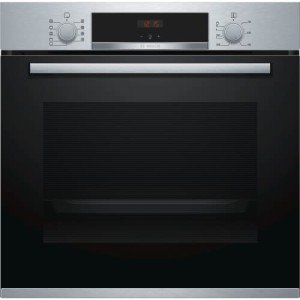Ten Stereotypes About Built In Electric Oven That Aren't Always The Tr…
페이지 정보
작성자 Ofelia 댓글 0건 조회 4회 작성일 25-05-20 04:44본문
The Comprehensive Guide to Built-in Electric Ovens and Hobs
In today's fast-paced world, modern-day kitchen appliances have evolved drastically to accommodate the tastes and needs of modern property owners. Among these appliances, built-in electric ovens and hobs stand out for their efficiency, design, and performance. This article checks out the functions, benefits, installation suggestions, and maintenance of built-in electric ovens and hobs, alongside attending to regularly asked questions.
Comprehending Built-in Electric Ovens
What Is a Built-in Electric Oven?
A built-in electric oven is a device designed to be set up into a wall or kitchen cabinets, supplying a seamless, integrated hob and oven look in the kitchen. Unlike freestanding builtin ovens, built-in designs save area and often come equipped with additional features such as self-cleaning cycles, convection cooking, and various cooking modes.
Types of Built-in Electric Ovens
- Single Ovens: Ideal for smaller kitchen areas or those who cook for less people.
- Double Ovens: Offer more cooking space, ideal for larger families or those who entertain frequently.
- Mix Ovens: These consist of both a conventional oven and a microwave, supplying flexible cooking choices.
Benefits of Built-in Electric Ovens
| Advantage | Description |
|---|---|
| Space-Saving Design | Fits flawlessly into kitchen cabinetry, maximizing counter area. |
| Improved Aesthetics | Develops a modern, professional kitchen look. |
| Versatile Cooking Options | Typically features several cooking modes consisting of bake, broil, built-in electric ovens and convection. |
| Energy Efficient | Consumes less energy than conventional ovens. |
Comprehending Built-in Hobs
What Is a Built-in Hob?
A built-in hob is a cooking surface area installed into the kitchen built in oven counter top, incorporating perfectly with the kitchen design. Readily available in electric, induction, and gas ranges, electric hobs are renowned for their precision and ease of usage.
Kinds Of Built-in Hobs
- Electric Hobs: Traditional coil elements that heat by means of electrical resistance.
- Induction Hobs: Use magnetic energy to heat only the pots and pans, making them quicker and safer.
- Ceramic Hobs: Feature a smooth surface with radiant heat beneath, offering easy cleansing.
Advantages of Built-in Hobs
| Benefit | Description |
|---|---|
| Fast Cooking Times | Electric hobs heat quickly, minimizing total cooking time. |
| Easy to Clean | Flat surface permits fast and simple cleansing. |
| Resilient | Traditionally built to last and withstand high temperature levels. |
| Versatile Compatibility | Functions well with different pots and pans products. |
Setup Considerations
Installing a built-in electric oven built in and hob needs cautious preparation.
Actions for Installation
- Measure the Space: Ensure the dimensions of the oven and hob match the allocated space in your kitchen.
- Check Electrical Requirements: Consult an electrical expert to ensure electrical wiring can manage the appliance's power requirements.
- Positioning of Appliances: Position the oven at a convenient height, usually between waist and eye level.
- Ventilation: Ensure proper ventilation, specifically if your oven includes a range hood.
Essential Tools
- Power drill
- Screwdrivers
- Level
- Determining tape
Safety Precautions
- Constantly detach the power before installation.
- Follow manufacturer guidelines thoroughly.
- Consider employing an expert for electrical connections.
Upkeep Tips
Preserving built-build in oven electric ovens and hobs is crucial for longevity and performance.
Routine Care Routine
- Cleaning the Surface: Use a soft cloth and manufacturer-recommended cleaner.
- Examining Electrical Connections: Check cords and plug for damages occasionally.
- Cleaning Filters: If the oven has a ventilator, tidy or change the filters as required.
Fixing Common Issues
| Issue | Possible Solution |
|---|---|
| Oven Won't Heat | Check the power supply and heating component. |
| Heating Inconsistency | Inspect the thermostat and oven calibration. |
| Hob Not Heating | Make sure pots and pans is suitable and check the power supply. |
Regularly Asked Questions
1. How do I select the best size built-in electric oven?
Picking the right size involves determining your kitchen space and considering just how much cooking you typically do. If you captivate frequently or have a large household, go with a double oven.
2. Are built-in electric hobs safe to utilize?
Yes, built-in electric hobs are safe, especially induction hobs which only warm the cookware, minimizing the danger of burns.
3. Can I set up a built-in oven and hob myself?
While it is possible for skilled DIY lovers, working with an expert is advised, especially for the electrical connections.
4. How often should I clean my built-in oven and hob?
Cleaning should be done frequently after use, with deep cleansing periods depending on cooking frequency - generally every couple of months.
5. Do built-in appliances need unique upkeep?
Built-in appliances require similar maintenance to freestanding models, but appropriate care should be taken with their surrounding cabinetry.

built-in electric ovens (Visit Hamajima) and hobs present a combination of innovation and design, using performance and modern aesthetics to any kitchen. With appropriate selection, cautious installation, and routine upkeep, these appliances can improve one's cooking experience for numerous years. Understanding the features, Built-In Electric Ovens benefits, and care requirements can empower homeowners to develop the kitchen of their dreams-- efficiently and stylishly.
As cooking areas continue to develop into central centers of the home, picking the right built-in options plays a vital role in daily cooking creativity and pleasure.

댓글목록
등록된 댓글이 없습니다.